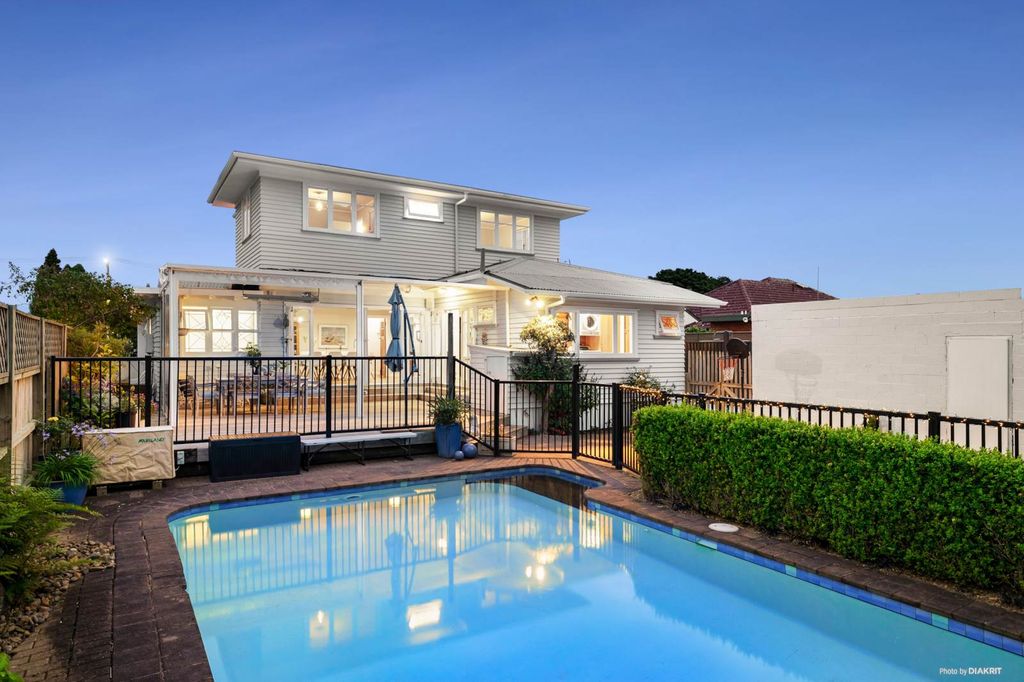Auckland currently 'on sale', says investor expert

A property in South Auckland has sold for close to $1 million less in February, compared to a year ago.
The four-bedroom, three-bathroom home, located on St George Street, Papatoetoe, sold for $1.305m on February 22, Barfoot & Thompson auction results show.
It marks an almost $1m loss (equating to a 43% drop in value) for the vendor/s – records show they purchased the property for $2.3m on February 25, 2022.
Information available on realestate.co.nz shows that the house sits on a 860m block and features a swimming pool and two garages (pictured below).

The real estate listing made it clear that the sale was “urgent”, stating that the property would sell on or before auction day. The “vendor’s circumstances dictate that this beautiful family home is now on the market”, Barfoot & Thompson real estate agents Roger Franks and Salesi Lalaulu said in the listing.
When approached by NZ Adviser, Franks declined to comment on the sale.
Investor and property coach Steve Goodey (pictured above left) told NZ Adviser that other factors were likely to have been involved in this particular sale, making the close to $1m loss a one-off.
However Goodey noted that Auckland property market values were down significantly compared to last year, with REINZ CEO Jen Baird (pictured above centre) confirming that the median selling price for Auckland in January was down 21.7% year-on-year.
“Auckland is very rarely ‘on sale’ but right now it is … why wouldn’t you take a look at a few cheap houses now and maybe secure one,” Goodey said. “We all know Auckland will recover soon enough.”
While the decline in the Auckland property market may not have hit rock bottom, Goodey said it was a fruitless game trying to pick the bottom of the cycle.
“I think it more important to spend time in the market rather than trying to time the market,” Goodey said. “But let’s be fair too, a year ago everyone wanted more houses and right now there are twice as many of them for sale and for hundreds of thousands of dollars cheaper.”
While rising interest rates and phased-out tax deductibility on mortgage interest costs are less than ideal conditions for investors, Goodey said higher yields remained a drawcard.
“They [investors] are also buying good quality new builds, voting for National or Act and pricing in deductibility and any more rate increases,” Goodey said.
Long-term fixed rates may ease as interest rates peak, and banks have shown a willingness to cut rates for new homeowners, making conditions more favourable for buyers, he said.
Baird said the market had been a bit slower and prices across Auckland in particular had come back over the last 12 months.
While the reasons for the property sale in Papatoetoe are not confirmed, CoreLogic chief economist Kelvin Davidson told NZ Adviser it would be reasonable to assume that the vendor/s intention was to hold the property for longer, and their circumstances had changed.
Even in a hot property market, there are occasions where people sell homes for less than the purchase price, he said.
Commenting on the 0.50% rise in the official cash rate in February, Davidson said that the increase made it expensive to be a new borrower, and was also an adjustment for existing borrowers as they reprice onto new rates.
For a borrower repricing from 4% a year ago to 6.5% now, the increase in mortgage repayments on a $500,000, 30-year mortgage would be around $9,275 Davidson said.
The latest CoreLogic Pain and Gain report for quarter four, 2022 showed the 4% of resales that made a loss over the quarter was the highest in three years. For houses, the median resale loss was $45,000 and the median resale profit was $325,000, the report showed.
Davidson said CoreLogic anticipated the current downturn to end in the second half of 2023, with sales activity starting to pick up and prices stabilising.
Contributing factors include mortgage rates close to or having peaked (future rate hikes have largely been priced into longer-term mortgage rates), an improvement in net migration and the outcome of the October election.
“By then, the downturn will be two years’ old ... it could be quite deep by then and some people will think about buying again,” Davidson said.



